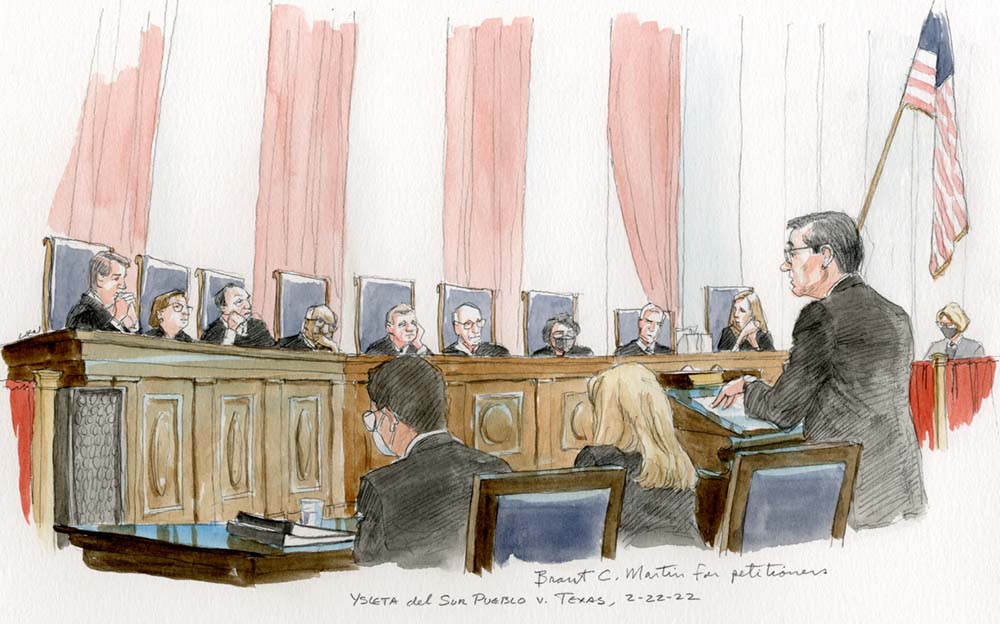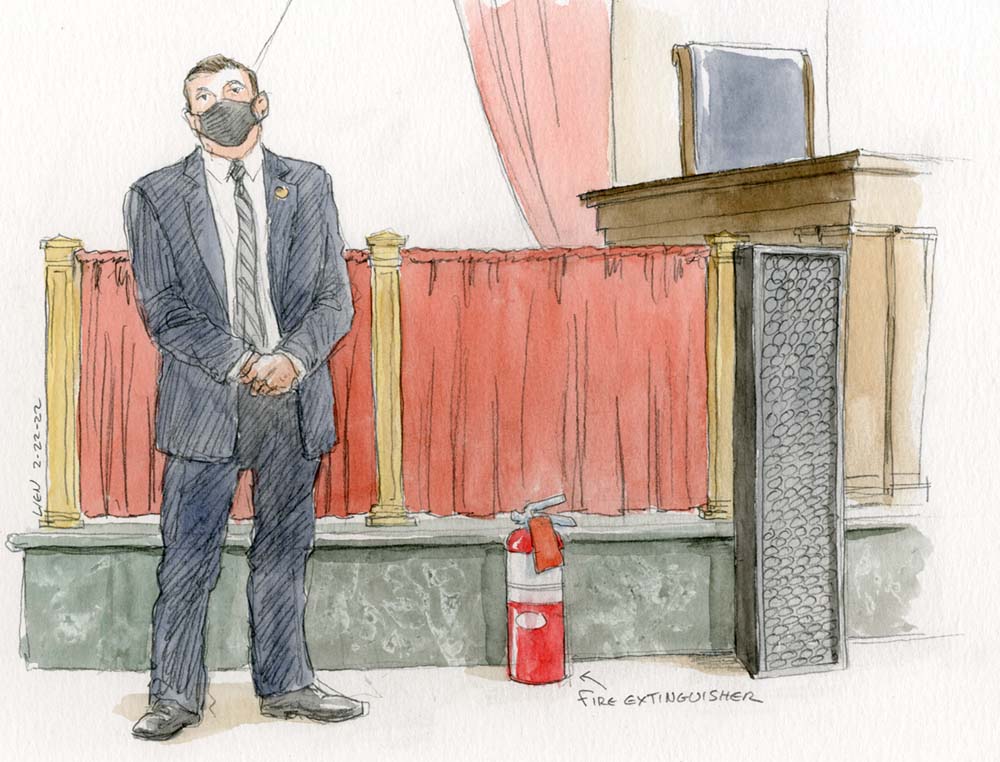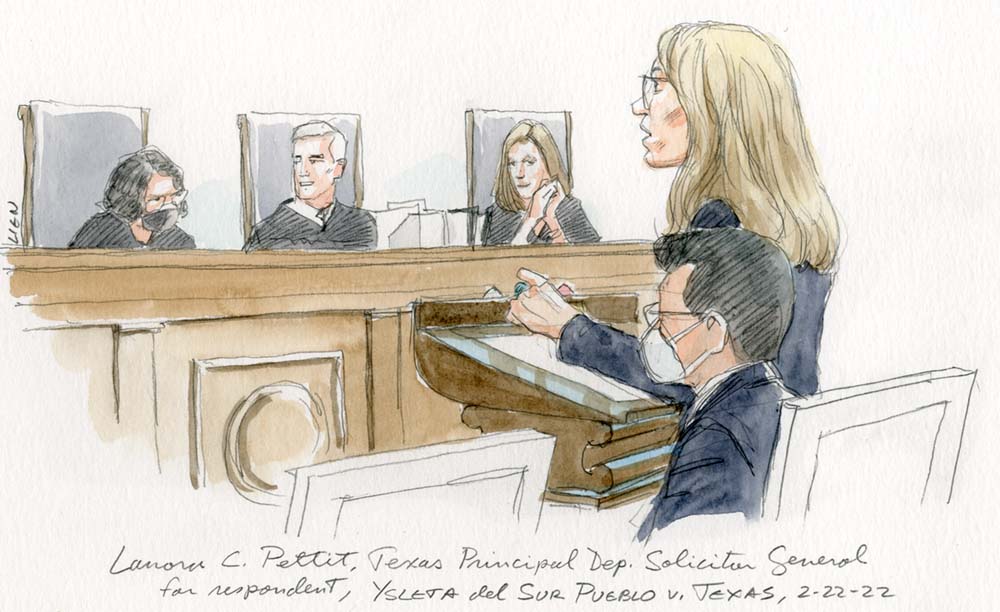Indianz.Com > News > SCOTUSBlog: Supreme Court tackles bingo and tribal sovereignty

Just say “Bingo!” Or “Dingo!”
A view from the Courtroom
Wednesday, February 23, 2022
SCOTUSblog
A View from the Courtroom is an inside look at oral arguments and opinion announcements unfolding in real time.
As some Supreme Court podcasters have noted, Justice Stephen Breyer’s retirement announcement in late January pushed the so-called Maskgate controversy out of the spotlight.
Today, the justices return to the bench after their long mid-winter recess, and the question in the press room is whether Justice Sonia Sotomayor will return to the bench and other justices will be masked. The omicron variant of COVID-19 had prompted Sotomayor to participate in January’s arguments via an audio feed from her chambers, while all but one of the other justices wore masks on the bench, either some or all of the time. Justice Neil Gorsuch was the much-discussed holdout.
As we wait for the session to begin, the always astute Art Lien notices an object in the courtroom that is not usually there, at least not in so prominent a position. A fire extinguisher is resting on the floor just below and to the left of the bench. Perhaps the court has concluded that certain podcasters are in need of more fodder for their metaphors about the status of the court.


This article was originally published on SCOTUSBlog, the Supreme Court of the United States Blog, on February 22, 2022. It is republished here under a Creative Commons license (CC BY-NC-ND 3.0 US).
Recommended Citation: Mark Walsh, Just say “Bingo!” Or “Dingo!”, SCOTUSblog (Feb. 22, 2022, 10:18 PM), https://www.scotusblog.com/2022/02/just-say-bingo-or-dingo/
Search
Filed Under
Tags
More Headlines
Native America Calling: Euchee food, whale hunting and young gardeners on The Menu
Cronkite News: Navajo psychiatrist addresses mental health needs
Chuck Hoskin: Tell the whole story about the theft of tribal lands
Native America Calling: A sample of Native Guitars Tour 2024
Cronkite News: Native organization carries on horse traditions
Native America Calling: How Native literature is changing the mainstream narrative
Native America Calling: No ordinary animal
Native America Calling: Safeguards on Artificial Intelligence
NAFOA: 5 Things You Need to Know this Week
Chuck Hoskin: Cherokee Nation takes the lead for our environment
Native America Calling: Earth Day assessment for Native peoples
Cronkite News: Gathering addresses ‘epidemic’ among Native people
VIDEO: Cody Desautel on tribes and federal forest management
AUDIO: Legislative Hearing on Discussion Draft of Forest Management Bill
Native America Calling: Remembering the 1974 Navajo border town murders
More Headlines
Cronkite News: Navajo psychiatrist addresses mental health needs
Chuck Hoskin: Tell the whole story about the theft of tribal lands
Native America Calling: A sample of Native Guitars Tour 2024
Cronkite News: Native organization carries on horse traditions
Native America Calling: How Native literature is changing the mainstream narrative
Native America Calling: No ordinary animal
Native America Calling: Safeguards on Artificial Intelligence
NAFOA: 5 Things You Need to Know this Week
Chuck Hoskin: Cherokee Nation takes the lead for our environment
Native America Calling: Earth Day assessment for Native peoples
Cronkite News: Gathering addresses ‘epidemic’ among Native people
VIDEO: Cody Desautel on tribes and federal forest management
AUDIO: Legislative Hearing on Discussion Draft of Forest Management Bill
Native America Calling: Remembering the 1974 Navajo border town murders
More Headlines